Politics
Maldives quits the Commonwealth: a round up of reactions
The decision to quit the Commonwealth has prompted a storm of criticism and calls to reverse the Maldives’ isolationist course
Published
8 years agoon
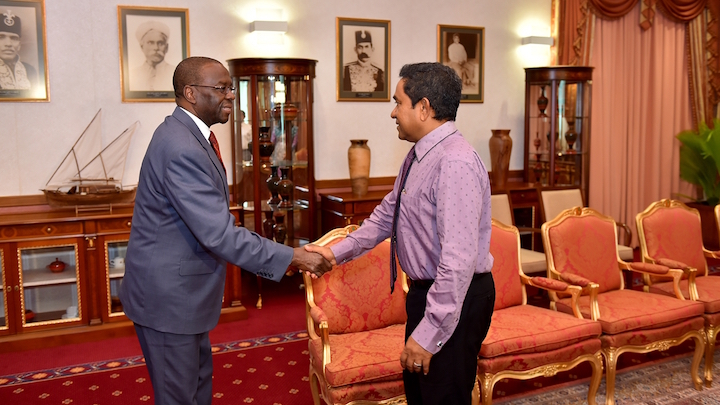
President Abdulla Yameen’s decision to quit the Commonwealth over its criticism of human rights abuses has prompted a storm of criticism at home and abroad and appeals to reverse the Maldives’ “isolationist” course.
Here is a round up of reactions to the announcement:
The Commonwealth’s secretary general, Patrician Scotland, said in a statement that the Commonwealth family at large would “share my sadness and disappointment at this decision.”
“The Commonwealth Charter reflects the commitment of our member states to democracy and human rights, development and growth, and diversity. We will continue to champion these values and to support all member states, especially small and developing states, in upholding and advancing these practically for the enduring benefit of their citizens.
“Therefore, we hope that this will be a temporary separation and that Maldives will feel able to return to the Commonwealth family and all that it represents in due course.”
Former President Maumoon Abdul Gayoom, who led the Maldives to the Commonwealth in 1982, said the 53-member inter-governmental body’s support had proved “vital in overcoming many of Maldives’ vulnerabilities in the past.”
The 78-year-old warned his half-brother: “Isolationism will not solve our problems.”
As someone who led Maldives into Commonwealth 34 years ago, I am disappointed that we have left. Isolation will not solve our problems.
— Maumoon Abdul Gayoom (@maumoonagayoom) October 13, 2016
Commonwealth support proved vital in overcoming many of Maldives vulnerabilities in the past. Hopefully we will rejoin.@PScotlandCSG
— Maumoon Abdul Gayoom (@maumoonagayoom) October 13, 2016
The main opposition Maldivian Democratic Party said the Maldives has benefited in trade, commerce, travel, medicine, education, sports and youth development.
“The government’s decision today will bring irredeemable damage in these areas, and for the Maldives’ standing in the international community,” it said in a statement.
Hamid Abdul Ghafoor, the party’s spokesman, said: “President Yameen has made the Maldives a very isolated place. This is an absolute despotic move, which says much about the Yameen regime and its political posturing and disregard for international or public opinion.”
Amnesty International, in a statement, said the Maldives had quit the Commonwealth because of criticism of its human rights record. The authorities should address abuses instead of lashing out at “legitimate criticism,” said Champa Patel, the advocacy group’s South Asia Director.
Describing the human rights situation as in “a complete free fall,” Patel said the government must stop complaining about unfair treatment and engage more constructively with the international community.
Dr Ahmed Shaheed, a former foreign minister and a United Nations special rapporteur for human rights in Iran, told the New York Times that the decision would prove counterproductive.
“He is getting deeper and deeper into isolation,” Shaheed said. “He would think he’s insulating himself from Commonwealth criticism, but he will receive more and more.”
The British high commissioner to the Maldives, James Dauris, described the Commonwealth as an organisation committed to the “development of free and fair societies, peace and prosperity,” and said he was saddened by the Maldives’ actions.
Saddened at #Maldives leaving Commonwealth, an organisation committed to development of free & fair societies, peace & prosperity.
— James Dauris (@JamesDauris) October 13, 2016
David White, the chief of the Commonwealth Human Rights Initiative, a Delhi-based human rights group that has long called for the Maldives’ suspension from the Commonwealth, told the Guardian that it was a “sad day.”
He added: “We did call for them to be suspended, but that was in order to call for more support for the Commonwealth to push for political reform.”
A sad day as #Maldives announces it is leaving the #Commonwealth https://t.co/vwvfi3Hjp3
— David White (@DavidWhiteCHRI) October 13, 2016
Moosa Latheef, a senior editor at Mihaaru, the country’s most influential newspaper, wrote: “President Yameen’s closest aides describe him as a man of courage. They tell us that we will never see such a president, and so the president shows us his courage in matters of his choosing. But the cabinet’s decision to quit the Commonwealth was not an act of courage. But cowardice.”
MDP MP Eva Abdulla called the decision “petulant” and “self-defeating.”
Govt’s unilateral decision to quit Commonwealth is a petulant,self-defeating step by a pariah.MV’s int standing will be irreversibly damaged
— Eva Abdulla (@evattey) October 13, 2016
Dunya Maumoon, former foreign minister and Gayoom’s daughter, said she was not surprised.
Saddened, not surprised to hear of the reversal of the decision by @maumoonagayoom in 1985 to join the Commonwealth @PScotlandCSG @WMutunga
— Dunya Maumoon (@dunyamaumoon) October 13, 2016
Faris Maumoon, her brother and an MP, said the Maldives was “fast-becoming a pariah state.”
Sad to hear Maldives is to leave @commonwealthsec v r fast becoming a pariah state
Need to reverse trend n regain position in intl community— Ahmed Faris Maumoon (@afarismaumoon) October 13, 2016
Ahmed Marzooq, the secretary general of the Maldives Olympic Committee, said the move would impact sports greatly.
Commonwealth in vaki vumun enme bodu gelumeh libigen dhaanee dhivehi kulhivarah.
— Marzooq (Mare’) (@AhmedMarzooq) October 13, 2016
Translation: It is Maldivian sports that will suffer the most by the decision to leave the Commonwealth.”
Shahindha Ismail, executive director of the Maldivian Democracy Network, a local human rights NGO, raised fears of losing scholarships to Commonwealth countries.
The government fails our youth again. What of the scholarships awarded for Commonwealth member states? Not everyone is privileged. #Maldives
— Shahindha Ismail (@HindhaIsmail) October 13, 2016
Responding to the government’s claim that the move would not affect investment in the country, Ahmed Tholal, former human rights commissioner, wrote on Facebook:
“What about the fact that the people are more helpless in their quest for proper democracy? What about all the students who were depending on the Commonwealth Scholarships? What about the contributions of Commonwealth to the civil society empowerment and creation of civic space? Not everything can be measured by extra large financial investments that the government can somehow benefit from. Right now for your own interests and because you will be exposed for the lack of human rights practices and the deliberate erosion of democracy you are choosing to leave Commonwealth without any scope for public opinion. So don’t sugar coat it.”
Maldivians on Twitter called the move “shameful,” “the most advanced form of abuse,” and noted that the country was following pariah states like Zimbabwe and Gambia, and not Singapore, the East-Asian country Yameen has promised to emulate.
Maldives can no longer become Singapore coz Singapore is a member of Commonwealth. 😭😭
— Poliwag (@damnedpoliwag) October 13, 2016
Don’t we as fucking citizens get a say in whether or not we want to be a part of the commonwealth? Or is Maldives just a one man country now
— Raula Ahmed (@raularr) October 13, 2016
Zimbabwe left CW in 2003
Gambia left CW in 2013
Maldives left CW in 2016
Yet claims will follow Singapore but illustrates else pic.twitter.com/DlAFgYcEdh— Rukuma (@RukumaA) October 14, 2016
Related Posts
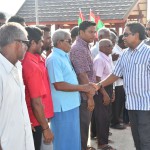 Yameen thanks India, Pakistan’s defence of Maldives at Commonwealth
Yameen thanks India, Pakistan’s defence of Maldives at Commonwealth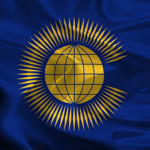 Commonwealth criticised for lack of action on Maldives
Commonwealth criticised for lack of action on Maldives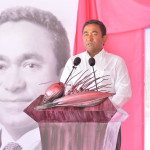 Yameen mocks calls for reform ahead of all-party talks
Yameen mocks calls for reform ahead of all-party talks CMAG to work with member states on judicial independence, political freedoms
CMAG to work with member states on judicial independence, political freedoms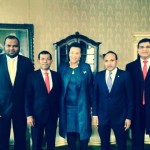 Nasheed calls for reforms to the Commonwealth
Nasheed calls for reforms to the Commonwealth World not convinced of need for Maldives emergency
World not convinced of need for Maldives emergency

Maldives Independent suspends operations

Iyaz on Female Circumcision

EPA rejects Maafaru runway expansion project

Infrastructure development pushing islands to ‘tipping point’








